Your cat has bad breath and you want to know what you can do about it?
Does it smell bad or really stink when your cat opens its mouth? What’s the reason for this and what can you do about this bad breath? You want to get to the bottom of the problem and make it disappear? Then you’re already on the right scent by coming to this page! Here we cover the causes and remedies for bad breath in cats – virtually odourless. Guaranteed.
Causes of bad breath in cats
Bad breath in cats can have a variety of causes. Since cats do not brush their teeth daily (so difficult for them to hold a toothbrush!), our furry-nosed friends sometimes spread scents that are not so nice for us humans. However, the intensity and the characteristics of the smell can be used to determine he culprit. So the motto is to use your nose!
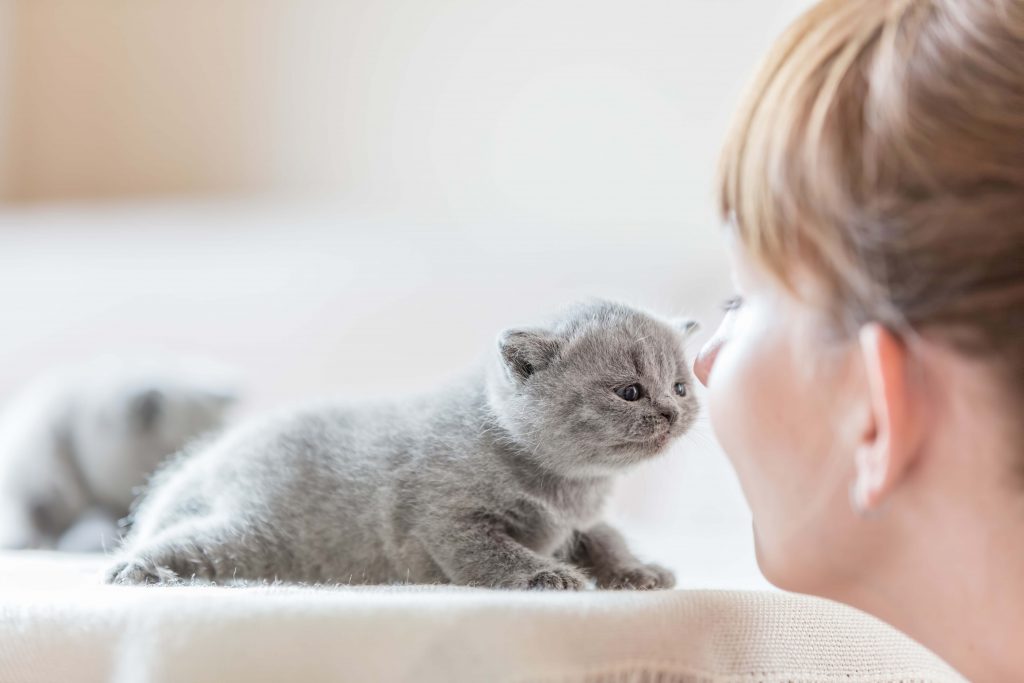
Slightly bad breath in cats is normal
There’s no need to worry if your kitty’s mouth smells a bit – that’s quite normal. Cats are carnivores. Meat from warm-blooded and cold-blooded animals contains a lot of protein: a perfect base for bacteria! If protein-rich fish or meat comes into contact with the cat’s oral mucosa, gets stuck between the teeth and spreads permanently in the mouth, bad breath will quickly develop.
Bad breath from cat food
The type of cat food plays a decisive role. Has your cat just eaten a fish platter or a chicken feast? The smell of meat does not last as long as that of fish. The brand of food plays a role, as well as how it’s processed. High-quality cat food or food that has been freshly prepared smells better afterwards than a lower quality food that’s close to its expiry date.
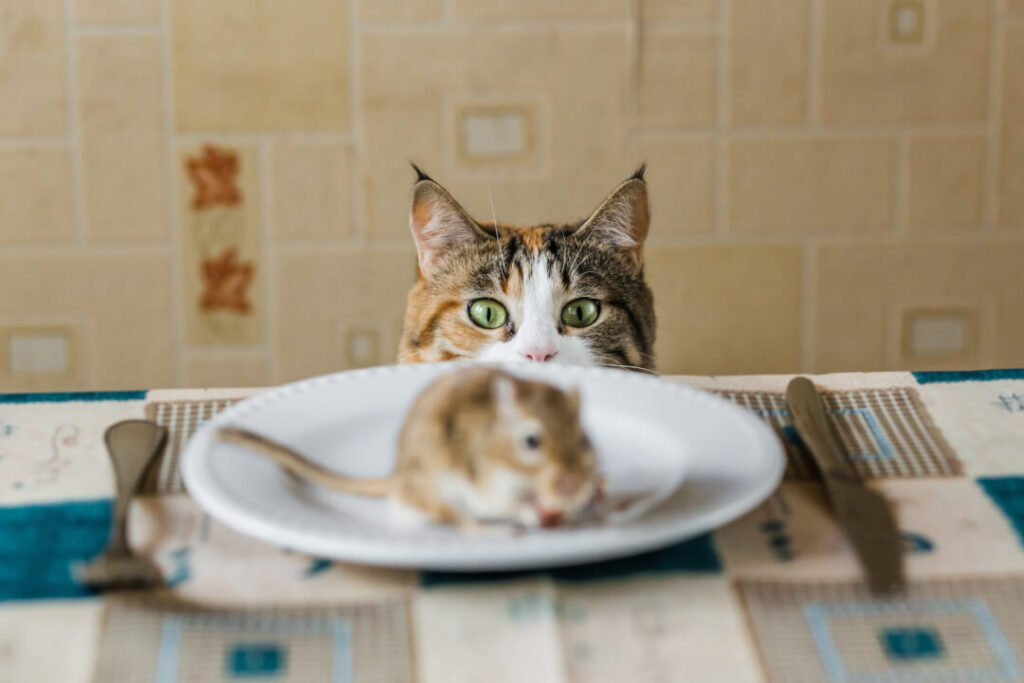
Bad breath due to dental problems
A healthy cat takes care of its body quite independently. But skin, claws and teeth should be examined from time to time and taken care of if necessary. Dental problems, diseases in the mouth, throat or gums are not only unpleasant and painful for your cat, they can also
Tartar in cats
Tartar (plaque) is a coating on the teeth. Deposits of food remain on the teeth and harden due to the minerals in a cat’s saliva. The longer calcification lasts, the firmer and more compact the tartar becomes. The edges of the gums are particularly affected. Gums can easily become inflamed and smell unpleasant as a result of an infection.
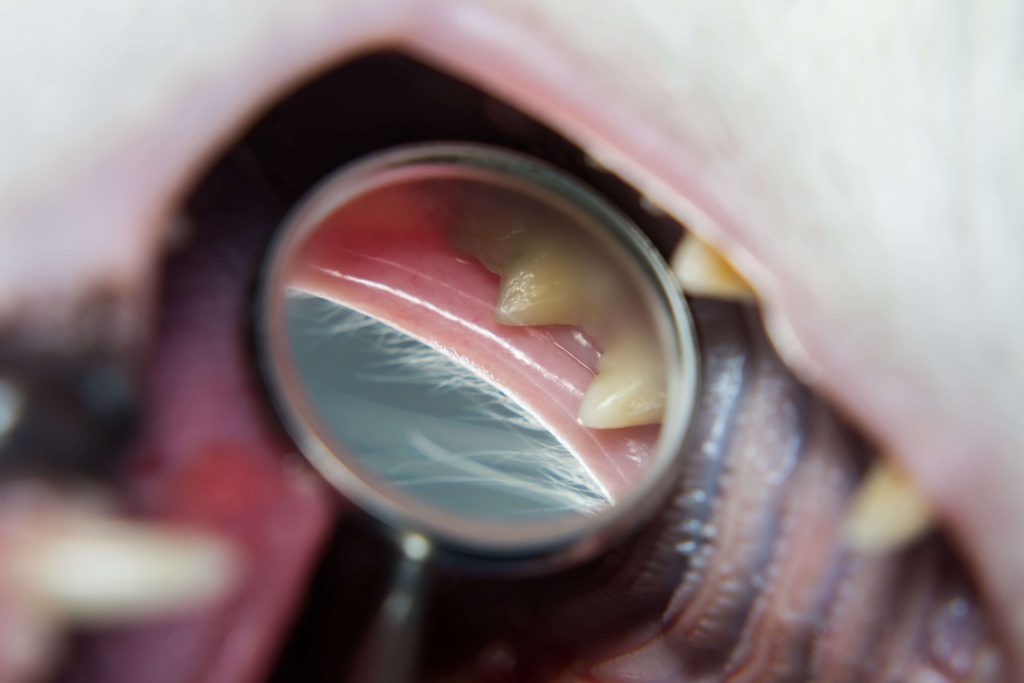
Gingivitis in cats
Tartar is only one potential cause of gingivitis in cats. The reasons why gums become inflamed can be complex. Gums can often become swollen and very red. When the disease is advanced, teeth and roots can be affected. In the worst case, even the cat’s jaw bone can be damaged.
Bad breath in kittens due to teething
When baby teeth give way to adult teeth, kittens sometimes have bad breath. The baby teeth loosen and fall out, and adult teeth take their place. This change can be somewhat painful for kittens as the gums become irritated. When the new teeth arrive however, the bad breath usually disappears straight away.
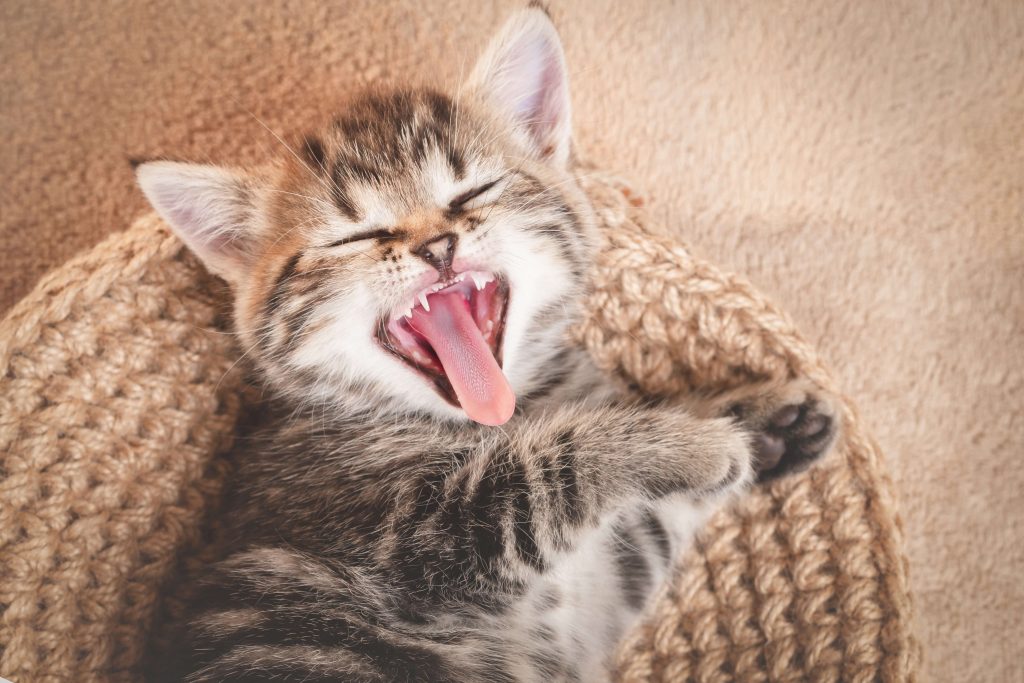
Bad breath as a symptom of disease
If your cat has bad breath, it is often harmless, but it can also be a symptom of illness. For some cat diseases, bad breath is a sign that you should not take lightly. If your cat has bad breath, the following organs may be affected:
Distinguish different mouth odours
Mouth odours can be very different. If your cat doesn’t smell like a freshly gargled mouth, it could be due to a number of reasons. These can be simple or harmless, but they can also be the first signs of a serious illness. What’s the smell in your cat’s mouth? What kind of odour is it? Every scent gives you clues and puts you on the right track to what could be behind it.
Sweet mouth odour in cats
If you notice that your cat’s breath smells sweet, your cat could have diabetes. This is a pathological disorder of the sugar metabolism that permanently raises blood sugar level. This damages nerves, organs and blood vessels. Your cat will feel weak and instinctively try to make up for lack of energy with more food, but will not be able to use the energy gained properly.
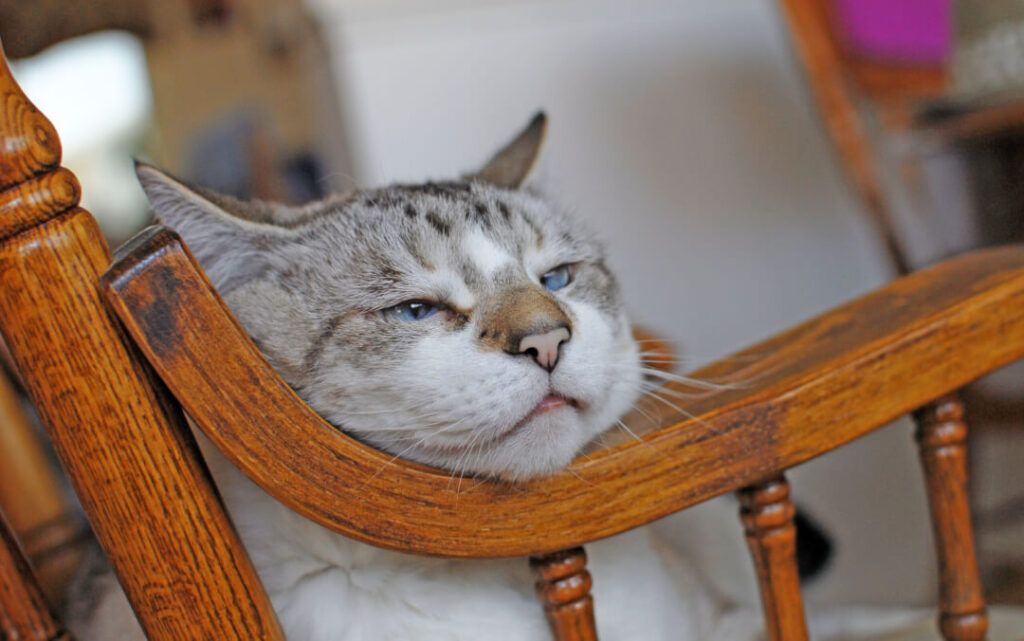
Foul breath in cats
Kidneydisease can be a reason for foul breath. Are puddles bigger and more frequent than usual? Kidneys can take a lot of punishment, and you usually don’t realise that they are damaged until they are only working at 20% of their capacity. If your cat smells foul from the mouth, this could be a sign that something is wrong with the kidneys.
Fishy breath in cats
Does your cat smell fishy when he yawns or opens his mouth? Then it could be that he has problems with his stomach, intestines or liver. Digestive organs can quickly become unbalanced due to a change in diet or food that’s gone off. Often fishy breath is also caused by parasites like worms that have spread in the intestines.
Counteracting very bad breath in cats
You can counteract very bad breath by getting to the root of the problem! To do this, you first have to find out what’s causing it: who or what? How can it be stopped? Often you can solve the problem quickly and easily. Sometimes it’s enough to improve your cat’s mouth care or change to a different food.
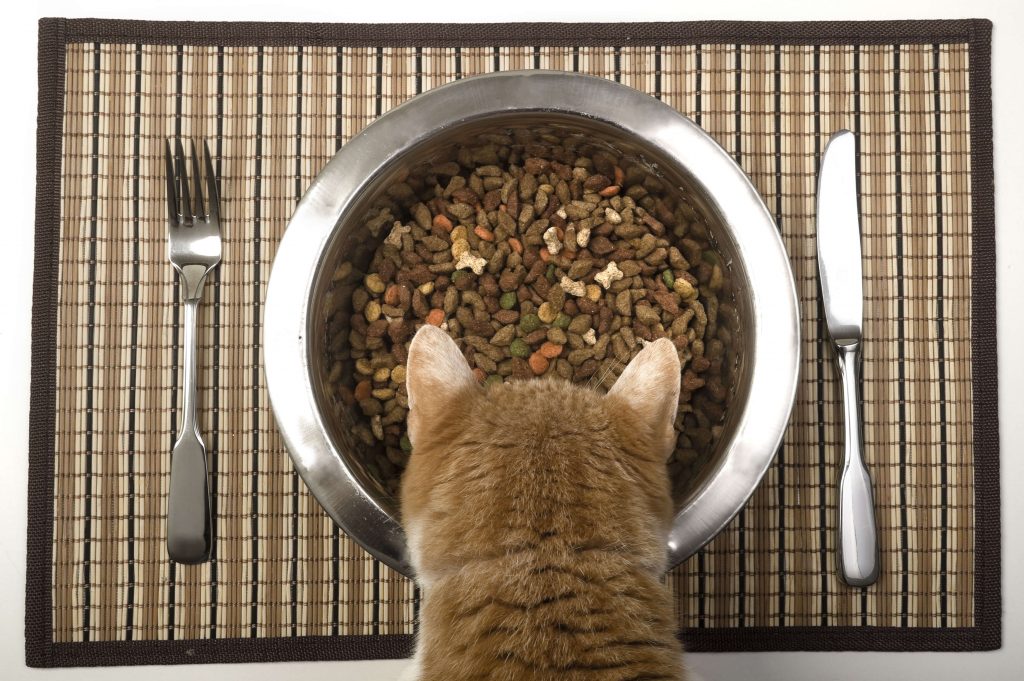
However, if bad breath persists and you are stuck, seek professional help from your vet.
A visit to the vet
You should also visit your vet if you suspect there’s a disease causing bad breath. A regular body check-up – and of your cat’s teeth – is important. When it comes to serious illnesses in the mouth and teeth, treatments at the vet can be quite expensive. Lucky that you have cat insurance to cover this.
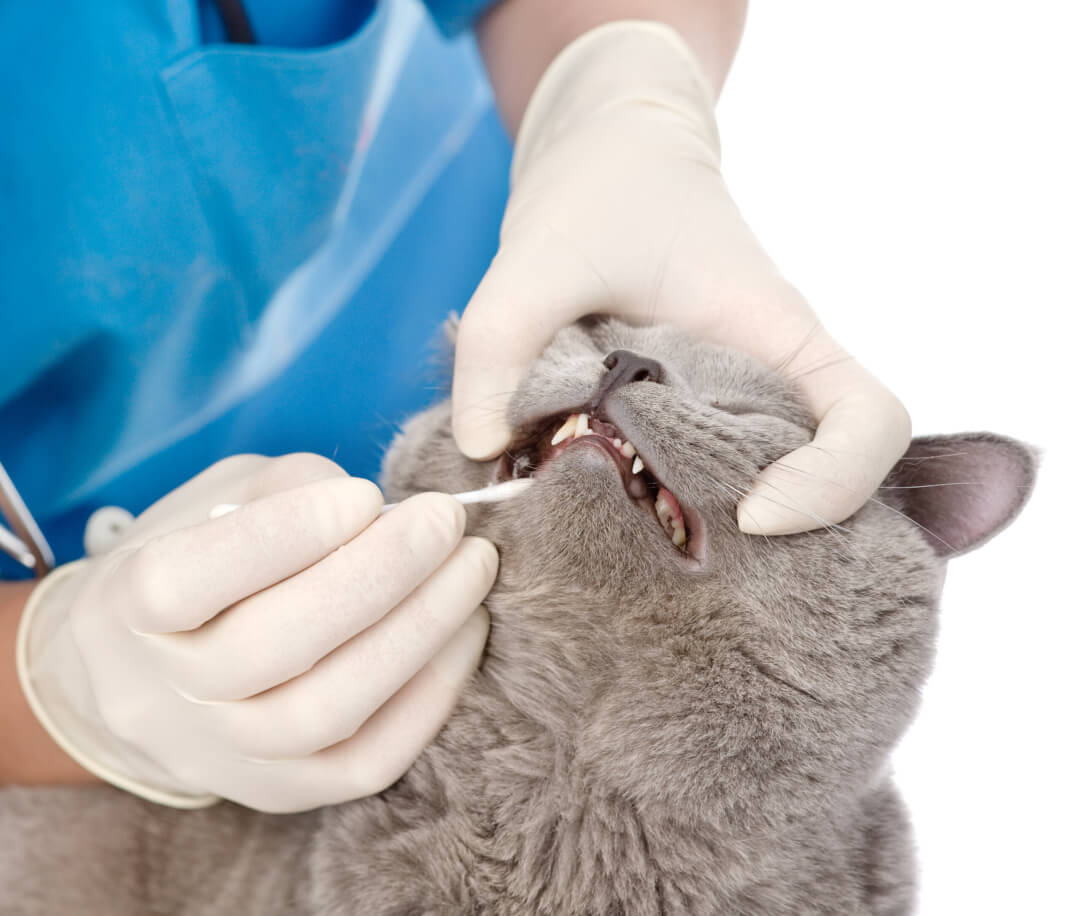
Acute diagnosis and treatment
The vet will examine your furry friend thoroughly and treat him accordingly. Depending on the cause, this can be done straight away or you may need to make a separate appointment for removal under anaesthetic. You may also be given medication for aftercare. When the source of the disease is eliminated, the bad breath will also disappear.
Regular teeth Check-up

Regular teeth check-ups are an absolute must! This will also prevent many other health problems. Kittens have a total of 26 milk teeth. An adult cat has 30 permanent teeth: 3 incisors, 1 canine, 3 molars in the front of the upper jaw and 1 molar in the back of the lower jaw. You should take a closer look at them once a week and clean them.
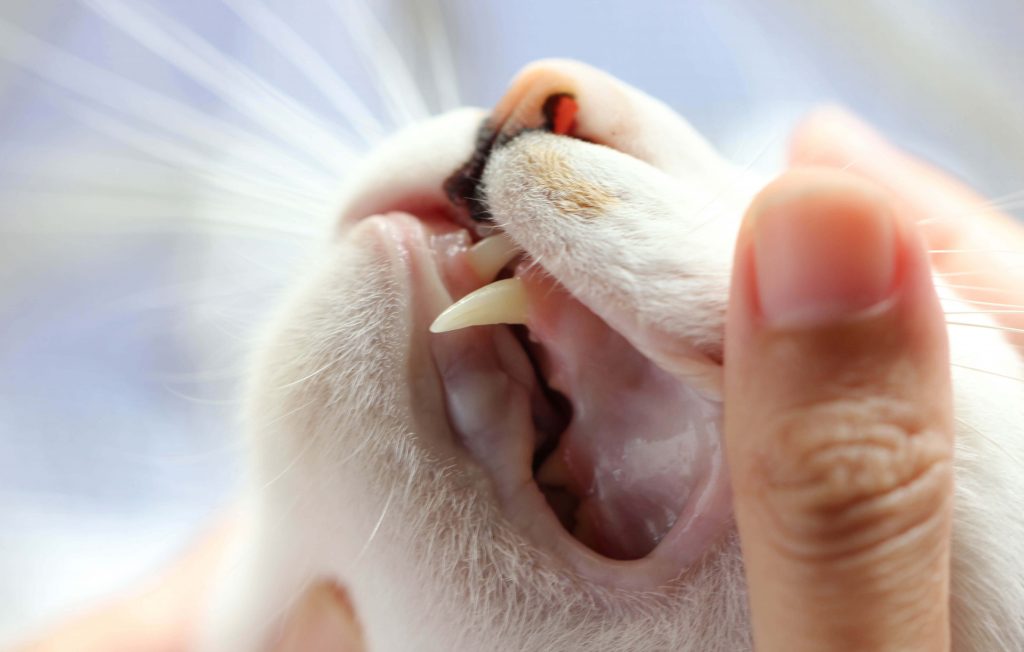
Brushing a cat’s teeth
It’s best to get kittens used to having their teeth cleaned Then brushing their teeth is a ritual that the little ones already know. Some cats are not so calm when you come armed with a toothbrush and toothpaste. Then you need to entice them and make the whole operation more palatable. However, brushing is no substitute for regular check-ups at the vet. It’s best to make a note of this in the annual calendar so you don’t forget!
TIP: Get your cat used to brushing step by step!
- at the beginning, stroke your cat’s teeth lengthwise with your (clean!) finger.
- replace the finger with a soft toothbrush when she is used to the procedure
- when a toothbrush becomes more familiar, add some cat toothpaste.
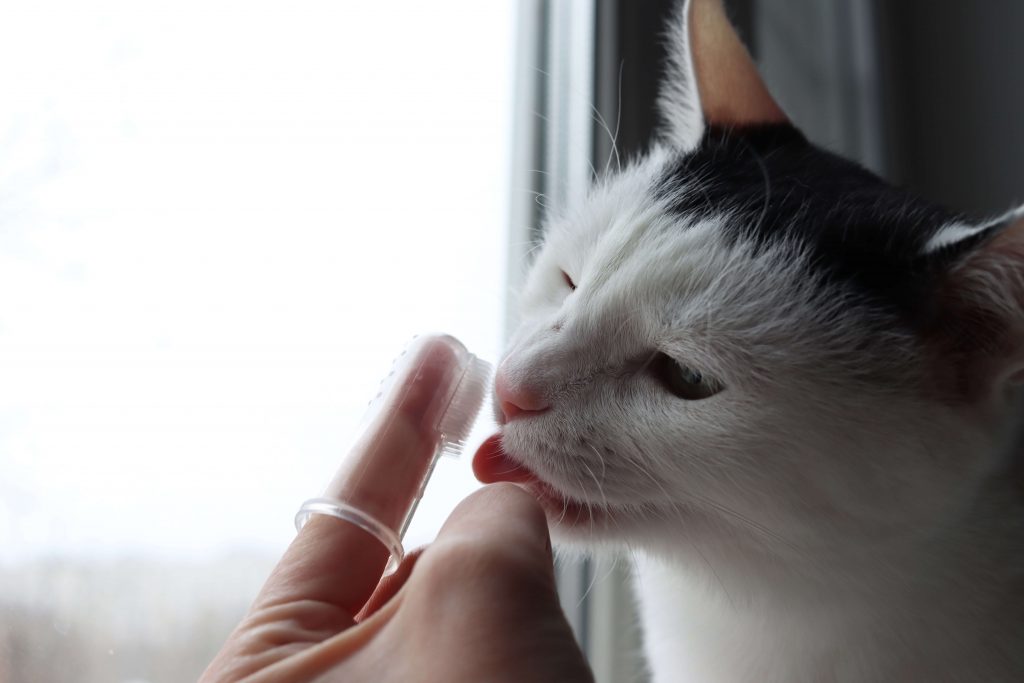
Monitor your cat’s breath
Monitor your cat’s breath. If you keep an eye – or rather a nose – on your cat’s breath you will quickly become aware if her mouth smells differently from usual. There are opportunities for this every day! You just have to take advantage of the moment when your little fluffball demands her cuddles. Then your purring friend comes close enough for you to take a quick sniff.
Getting rid of harmless bad breath in cats
Are there any tips and tricks to get rid of harmless bad breath in cats? When your cat eats, food remains in the mouth and between the teeth – you can’t prevent this. After all, you can’t let your cat starve to death! Bad breath, even if harmless at first, cannot be completely avoided. But there are some remedies, which don’t replace care and control, but can help to keep bad breath in check.
Change cat food
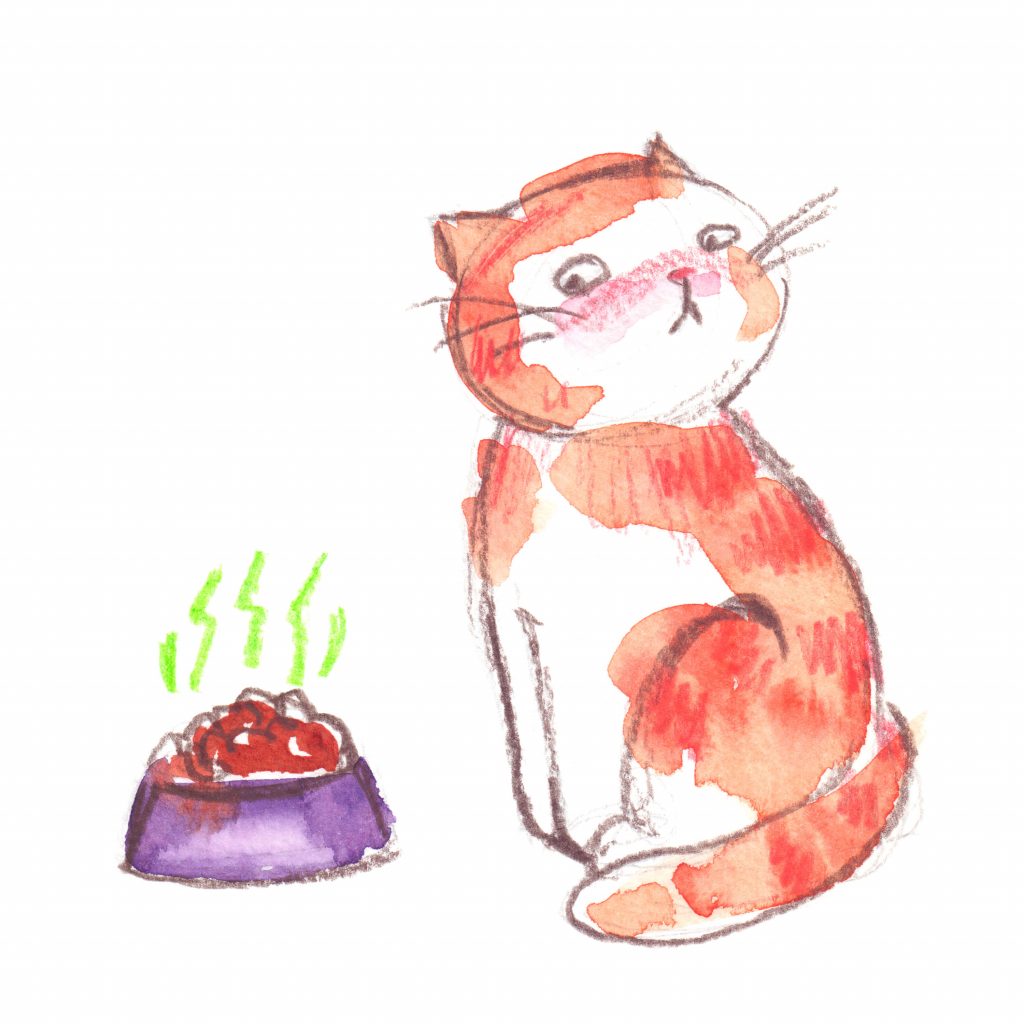
Change cat food. Feeding your kitty good quality cat food will reduce bad breath. You will also prevent your cat from developing other diseases that poor quality food can cause over time. There are also special cat foods designed specifically for dental care that can help reduce bad breath as well.
Catnip and cat grass for bad breath

“There’s a herb for every ailment” as the saying goes. Which herbs help with cat bad breath? Offer cat grass to nibble on. Cat grass is available in different varieties in pet shops and can be easily grown indoors. Catnip, which you can buy as a ready-made product or grow it yourself, can also be helpful against bad breath.
Encourage your cat to drink

Make sure your cat always gets enough to drink:
- Water bowls: place several water bowls in different places.
- Pure water: please don’t give milk or juices to drink!
- Indoor fountain: cats love running water – a cat fountain can encourage them to drink.
